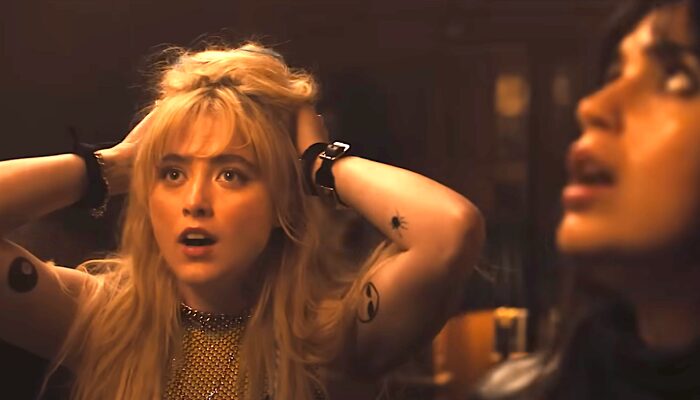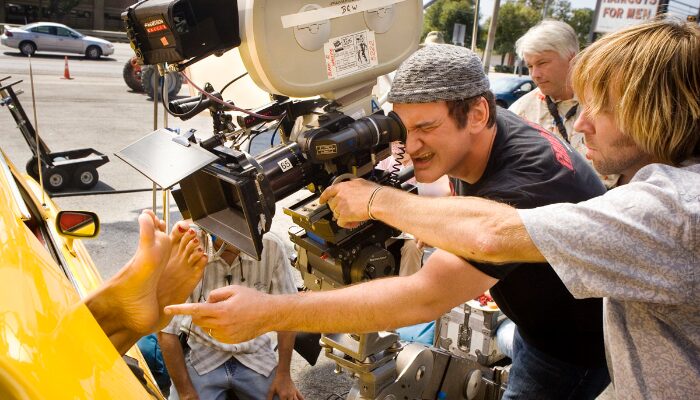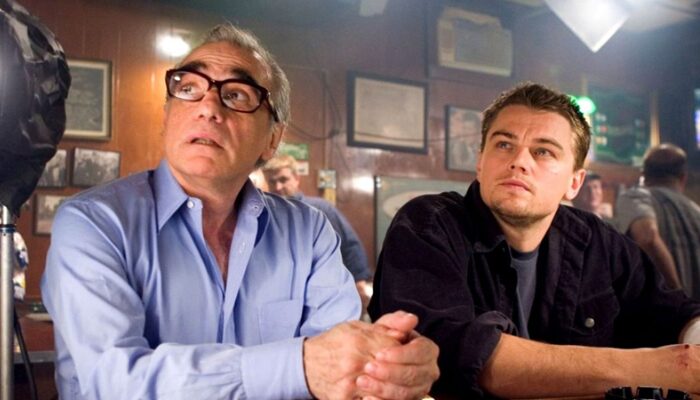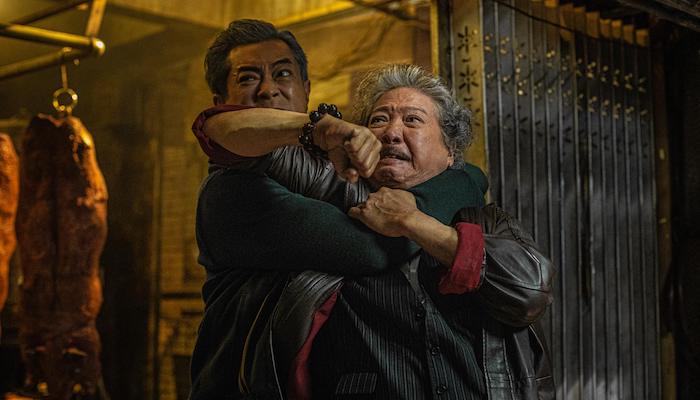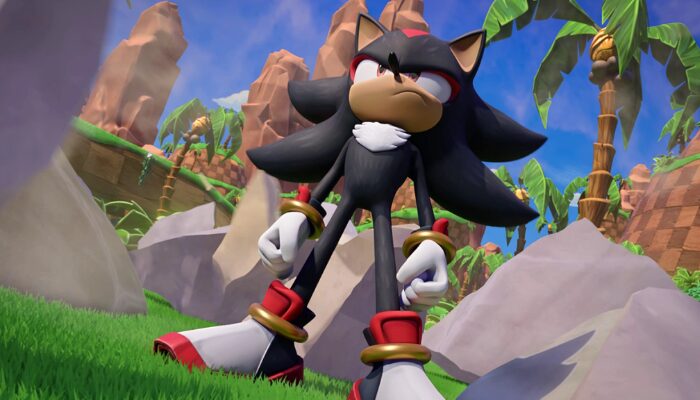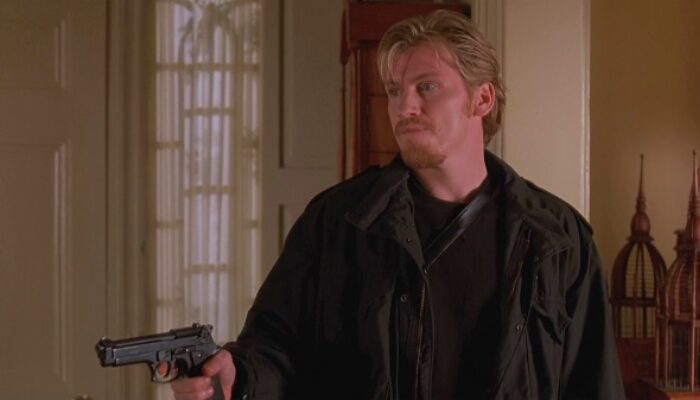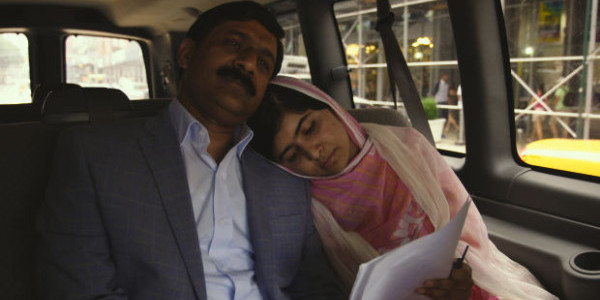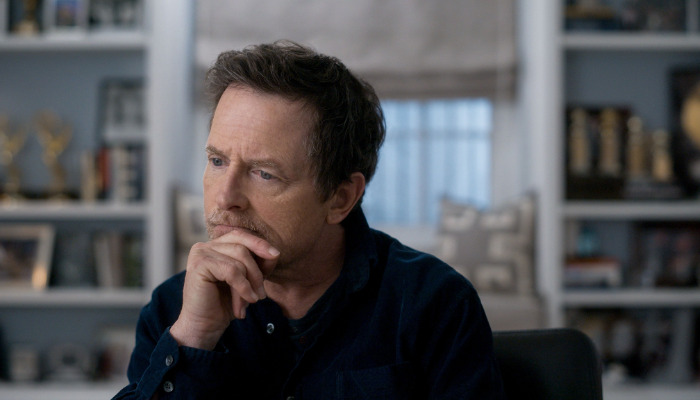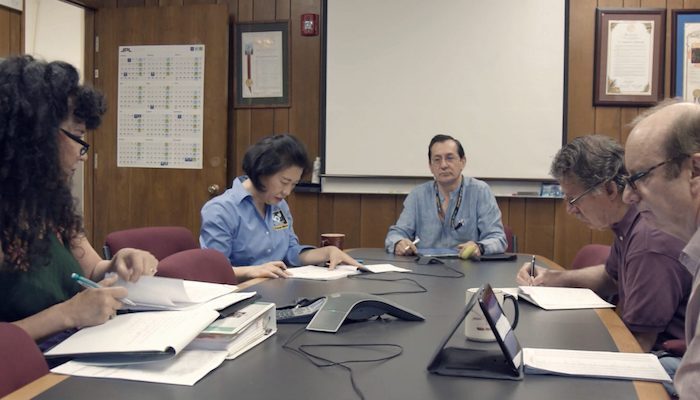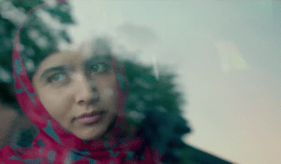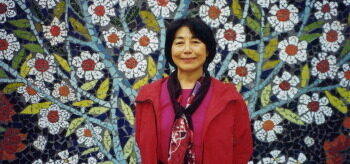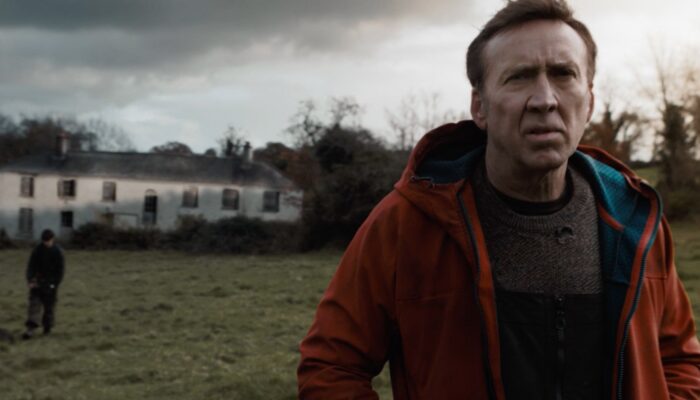Film Review: HE NAMED ME MALALA (2015): Generations of Inspiration in the Most Ordinary of Icons
He Named Me Malala (2015) Film Review, a biographical documentary film directed by Davis Guggenheim, and featuring Malala Yousafzai, Ziauddin Yousafzai, Toor Pekai Yousafzai, Khushal Khan Yousafzai, and Atal Khan Yousafzai.
Where documentaries are concerned, there are usually two approaches to any given subject: expand on the familiar, or explore the unfamiliar. With He Named Me Malala, Davis Guggenheim (An Inconvenient Truth, Waiting for “Superman”) managed some of the former, while focusing on the latter. The film is, all at once, intimate & humanly simplistic, broadly political & grandly humanistic, and well grounded, but with a sense of ambition that spans both borders & generations. What is familiar about Malala is, of course, the fact that its titular figure does carry the weight of a movement upon her shoulders – having become synonymous with a number of causes. What is likely unfamiliar about it: just how ordinary this young woman truly is, and how commonplace her story has been. So commonplace, in fact, that it does not set her apart from friends & family. Malala was just as much about the Yousafzai family & background, as it was a profile of its most celebrated member. A fact made clear when this bare bones documentary began with a historical footnote of almost mythic proportions, both in its visuals & narrative.
Beyond the fever-dream visuals, of Jason Carpenter’s watercolor styled animation, the historical context to the film, as mostly provided by Malala’s father, Ziauddin, brought a sense of scale to the story. As the namer, in the title, Ziauddin made it clear that there was more to Malala’s influences than living up to the martyr she had been named after. While the story of the Pashtun ‘Joan of Arc,’ Malalai of Maiwand, had been an inspiration to him, and seemed to bear out in the form of his first-born daughter, more of the Yousafzai family history went into the figure of Malala than any kind of namesake destiny.
Malala was as much about what it took for her father & mother to get to a point where someone like Malala would even be allowed to exist, under their old country conditions, while coming to epitomize a family tradition of outspoken conviction, as an ex-patriot & global citizen.
Anyone who knows the name Malala, likely knows the basics to her story & current status. This was reason enough for Guggenheim to not get into seminal event, itself, and mostly stay clear of her subsequent public life. We did get to see the public figure at work; but mostly as a set up for candid BTS or film moments, where we were allowed to see how Malala & the others both deal with, and are affected by, the public aspect to the story.
As poignant as moments highlighting her public views/ works were, the film’s best moments may have actually been candid scenes at her home & school. Between her celebrity crushes, and interactions with schoolmates, the film established that Malala’s exercising of choice has meant choosing to adhere to her Islamic Pashtun traditions. Still, there is something disarming about role models being typically imperfect, and her youngest brother, Atal, did steal the show, when allowed to freely talk about his sister. No saints among siblings, after all; but Guggenheim went further than just taking the public figure down a peg, among friends & family.
Unless laser focused on a singular aspect, a responsible documentarian at least acknowledges differing views, to large, multi-faceted matters. In this case, that meant allowing the Taliban to have their say, in the form of public broadcast (and demonstrating how they were able to gain power in Malala’s homeland, in the first place); but more telling was one-on-one interviews, featuring ordinary Pakistanis (all male, BTW), condemning & denouncing her as a corruptive influence, assassinating her own culture on behalf of her adopted Western lifestyle & her own ambitions.
With that in mind, this film will not be changing many feelings/ opinions. To those who regard her as extraordinary, the everyday humanity to her story, and that of her family, will likely only reinforce that view. To those who view her as an affront, or threat, the very things depicting her as ordinary, by Western standards, will only encourage calls to marginalize – if not silence – her. By the same token, I’m certain there may be some Western voices willing to dismiss her as being an agent of feminist activism. Malala reaffirmed this, in my view; but understand, in my view, feminism isn’t about putting females ahead of males, but on the same footing. Malala wasn’t a profile on what happens when a girl is privileged – it highlighted an example of what anyone can do, given the right environment & encouragement.
I suppose the divide was one more good reason not to emphasize the assassination attempt. Both sides can agree that it was a crystalizing moment, creating a figure that has since proven both their points of view. The beauty of the film was that it found the most profound realities in the simplest aspects of the whole story – past & present.
Malala, her father, her family, her friends – none of these people are actually extraordinary, they had simply made the most of an opportunity – and by opportunity, I do not refer to global prominence, a celebrity platform, or idol status. The look of joy/ satisfaction upon Malala’s face, at her reception, has been one of a girl simply enjoying the opportunity to speak & be heard, after nearly dying for just that.
Malala’s courage reflected not just that of her father, but also her mother, her friends, and every other voice that has either been silent, or silenced, around the World. How many Malalas did not survive their oppressors? How many are being cowed/ killed right this moment? How many of them are/ were at least as gifted/ determined as the one so many have been celebrating?
Joan of Arc moments don’t come very often, and even when they do, it is wise to question the distinction between opportunity & providence. Malala, herself, rejected the notion that there was an element of destiny, to her father connecting her to Malalai. That could be considered modesty, but I’d like to think that was Malala’s way of acknowledging that there was nothing particularly special about Malalai, either. True, there may not seem to be as many people willing to die for their beliefs as some of us would like, making martyrs (Malalai) & heroes (Malala) out of the ones that do; but more people do so then we likely think – we just never get to know that they did, or even that they existed.
The film did not just profile the ordinary girl, behind an extraordinary public figure; but allowed that girl to present herself, as seen through her own eyes, as one of an incalculable many – no better or worse – given the opportunity to speak & be heard, through her circumstance, and having something meaningful to say, because of a supportive family. She may have been named Malala out of a sense of inspiration, borne of family spirit, and legendary courage; but however true she has been, to that name, it has been earned through the actions & convictions of its owner, its provider, and a fostering environment.
I suppose my take away from the film was that maybe Malala isn’t so much just like the rest of us, as any of the rest of us can be – or already are – just like her. I find that be something of a reassuring thought.
Rating: 9/10
Leave your thoughts on He Named Me Malala & this review in the comments section below. For more film reviews, visit our Movie Review Page, our Movie Review Facebook Page, our Movie Review Google+ Page, consider subscribing to us by Email, “following” us on Twitter, Tumblr, Google+, or “liking” us on Facebook for quick updates.
Related Articles
FilmBook's Newsletter
Subscribe to FilmBook’s Daily Newsletter for the latest news!

